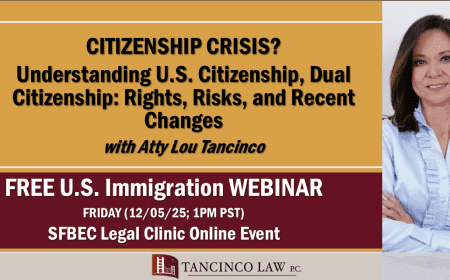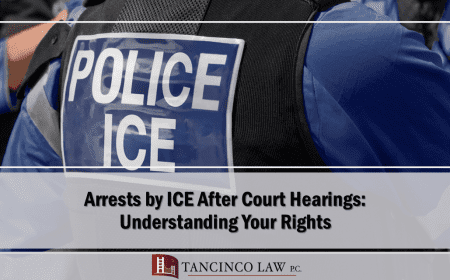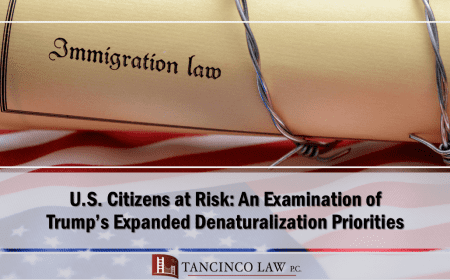The recently released August 2014 Visa Bulletin of the U.S. Department of State reveals an unusual movement in the priority dates of certain petitions of U.S. citizens. For the first time in many years, the priority dates for the first preference category (F1) petitions by U.S. citizens on behalf of their adult single children are advancing faster than petitions by green card holders under the F2B category. What could have generated the acceleration of priority dates under the F1 category? Is this really good news to those who had chosen to stay as green card petitioners?
Carlos was petitioned by his U.S. citizen brother and arrived in the United States six years ago. It took 24 years before his brother’s petition under the fourth preference category (F4) became current. As a result of the lengthy process before the visa was actually issued, Carlos’ two children, Jed and Jon aged out or turned more than 21 years old.
Upon arrival in the United States, Carlos lost no time in filing a petition for his two adult sons. One of his adult sons, Jed, is a special child and Jon acts as his guardian. Carlos wishes to see Jed and Jon join him in the United States. Unfortunately, he was told that the waiting period for petitions on behalf of adult children takes at least 10 years.
Carlos filed for naturalization to U.S. citizenship after residing in the United States for more than 5 years. He sent a copy of his naturalization to the National Visa Center with the hope that Jed’s and Jon’s petition will be processed faster. Unfortunately, Carlos was told that U.S. citizen’s petitions for their adult children automatically converted to first preference category (F1B). Under this F1B category, it takes longer to petition adult children compared to petitions by green card holders under the F2B category.
When he realized his decision to be a U.S. citizen resulted in longer waiting time on the petitions of his children, he sought legal advice. He was informed that his sons can opt out of the automatic conversion and the petitions will remain under the F2B. He followed instructions on opting out and the request was approved. The priority date of petitions is 2004 under the second preference. For many years, the priority dates on the F2B category are moving faster. This month of July, Carlos noticed that the F1 category is moving faster than the F2B. He now wants to his petitions to be classified back to the F1 visa category. Can he revoked his approved request for opt out to F2B in order that his sons petitions may be processed under the F1 category?
Filipino Beneficiaries of Petitions
Philippines is one of the four countries that have severe backlogs in terms of processing of visa petitions. The other three countries are China, Mexico and India. But from amongst the four countries, only the Philippines suffer backlog of the visa petitions under the F1 category compared to the F2B category.
Under present immigration system, an individual who is a U.S. citizen enjoys greater benefits in terms of petitioning for their minor children, spouses and parents. But if the person being petitioned is a single adult child, the green card holders petitioning parents are better off in terms of waiting time.
To address this dilemma, a petitioning parent may avail of the specific provision of the Child Status and Protection Act (CSPA). Generally, the petition of a green card holder parent is automatically converted to FB1 when the parent naturalizes. With the opt out provision, under Section 6 of the CSPA, the son/daughter being petitioned may opt out of the automatic transfer to F1 and remain in F2B status. The petition will retain the original priority date as long as the petition was properly filed. With the approval of the opt out request, the petition is converted but will retain the original priority date. In essence, the U.S. citizen parent may still avail of the benefit of a green card petitioner despite having naturalized as a U.S. citizen if the adult child who is being petitioned decides to “opt out” of the automatic conversion.
August 2014 Visa Bulletin
The CSPA has been enacted in 2002 and long before that the peculiar backlog under the F1 category existed for many years. Very recently, after approximately 20 years, this situation has changed. A significant movement of priority dates for the month of August 2014 now indicates that the first preference moves faster than the second preference. While the current F1 priority date for August is June 1, 2004 the priority dates are moving at a pace of 6 months every month. This is good news to many U.S. citizen petitioners as their priority dates may be reached sooner.
With this positive development, comes a major concern that must be addressed. Like in the case of Carlos, petitioning U.S. citizen parents prefer to have their petitions in a category that processes their children’s visas faster. What will happen to those who decided to opt out of the first preference category? There may or may not be an opportunity to terminate the “opt out” approved request pursuant to the CSPA since this option is simply a remedial measure. But as of this writing, there is no guidance yet released by the Department of State regarding this matter. Considering the fluctuating movement of priority dates, it is best to wait, if this positive development will remain consistent in the coming months before making any major decision about filing revocation of their approved “opt out” requests.
(Atty. Lourdes Santos Tancinco may be reached at law@tancinco.com or at (02)721 1963 or visit her website at tancinco.weareph.com/old)




